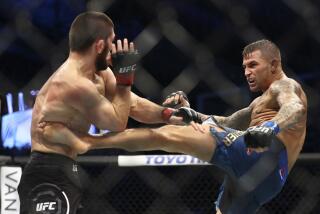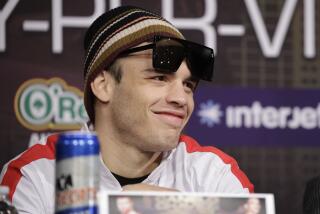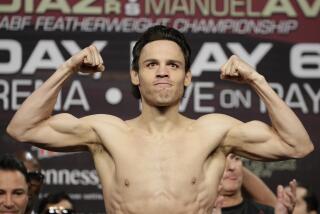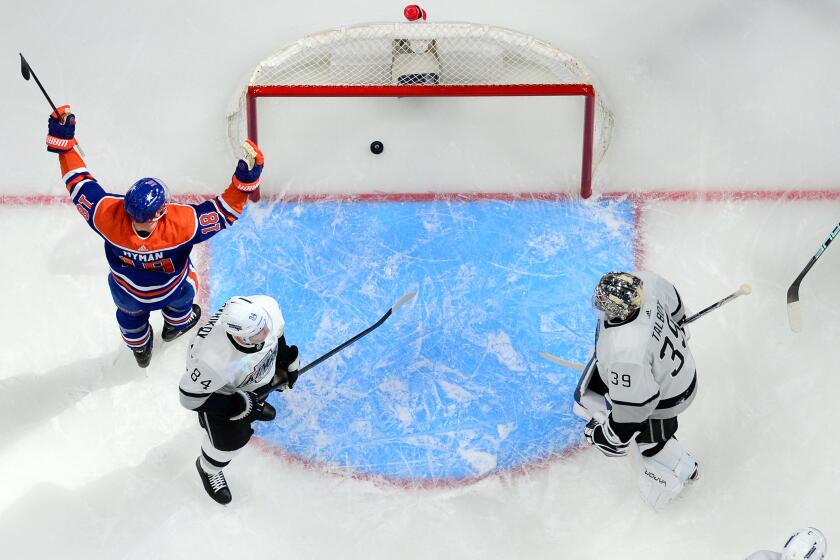Rejuvenated Georges St-Pierre returns to UFC seeking middleweight belt
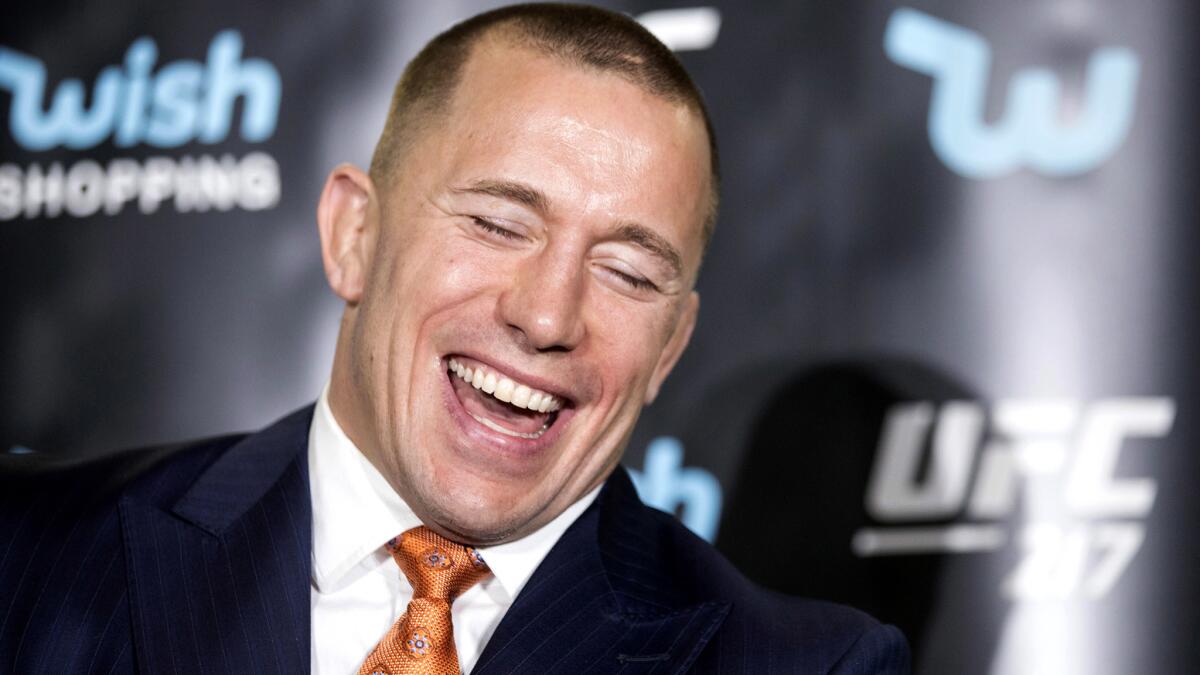
Georges St-Pierre left the UFC four years ago with his head a mess, both inside and out.
Beyond escaping with a narrow victory after taking an unprecedented pounding from welterweight title challenger Johny Hendricks, St-Pierre found himself questioning both his desire and the UFC’s lax performance-enhancing drug policy.
At 25-2 and riding a 12-fight winning streak that made him the UFC’s most powerful pay-per-view draw, St-Pierre retired at the height of his career at age 32.
On Nov. 4, in the UFC 217 main event at Madison Square Garden, a reinvigorated St-Pierre returns to the octagon to meet fellow veteran Michael Bisping, 38, for the middleweight belt.
“Maybe the fans will have forgotten me. Maybe I have more fans because the sport has grown. I don’t know,” St-Pierre said in a recent conversation with reporters. “We’re in a different era. I’m an old-school guy now.”
Old-school, but not old, says St-Pierre’s boxing trainer, Freddie Roach, the seven-time trainer of the year who has maintained steady “retirement” contact with St-Pierre and spent three days a week supervising his training camp in Montreal.
“Those four years he was out … guess the days he missed training?” Roach asked. “Zero.”
St-Pierre confided “it was always in my head” to return to the UFC, even in light training “a few months after I finished.”
“I would not have come back if a few things in the sport had not changed,” he said, alluding to the UFC’s 2015 alignment with the U.S. Anti-Doping Agency to conduct Olympic-style drug testing on fighters.
That program has tripped up such profound names as former light-heavyweight champion Jon Jones, ex-middleweight champion Anderson Silva and former heavyweight champion Brock Lesnar, while Hendricks is in a 1-4 slump under the new drug-testing system after nearly vanquishing St-Pierre.
There was something more to St-Pierre’s break. UFC President Dana White knew it, and long maintained St-Pierre would never return.
“If you’re in this business, you jump out of bed every day and want to train and fight and you’re hungry,” White said. “Only GSP can answer this, but I think he got to a point where he realized he wasn’t that hungry anymore and he thought it was best for himself — and he had a lot of money — where he thought, ‘If I’m not an animal like I was, it’s probably dangerous for me to be in there.’ And I agreed.”
“It’s a very mental game,” St-Pierre says. “Satisfaction is death. If you’re satisfied, it’s time to go home. That’s why it’s hard to be champion. That’s why many lose their belt right after winning it.
Challengers “adapt very well to you. It gets harder and harder to finish people [with punches]. You’ve been studied. They know how you move. They know how you think. You’ve been preparing for them for six to eight weeks in training camp. They’ve been preparing for you since they started.
“You’re satisfied. I’d think to myself fighting [former challengers] Carlos Condit and Nick Diaz: ‘Who will be more happy to win the title? Me again? Or this guy who’s still rushing to make a full living and have a future? I cannot deny he will be more happy.’ So I needed to transform myself mentally to beat that … I needed a bigger goal than being champion.”
Roach’s influence is important now because Bisping can box, a discipline that so many other UFC champions have refined over the years.
“I still think Georges’ takedowns will probably be the difference,” Roach said. “I’m not telling him what they told Ronda Rousey against [boxer] Holly Holm, to go out and strictly box. His best game is not boxing, but the boxing will create a different look. He knows how to defend himself. I don’t think he’ll get hit.”
St-Pierre said taking a break from his fighting obsessiveness, reflecting on life lessons and returning as a challenger driven to topple a confident, talkative champion gives him cause to believe his return will be triumphant.
If he loses, he says, he’ll leave the sport, committed to the idea that he’ll never be reduced to being a “punching bag.”
“Being the strongest man in the world is something I’ve come to realize doesn’t exist. There’s no such thing. When I was younger, I thought … this was my fantasy. That’s why I did this sport, to walk in a room and say that,” St-Pierre said.
But, in the hiatus, “I gained a lot of knowledge. Knowledge is a weapon. The reason I’m going to beat Michael Bisping is not because of my training camp today, it’s because of what I’ve done throughout my life. What I did 20 years ago. Everything you’ve done leads up to this.
“Life, and the career of a fighter, is not a straight line. … You might have to avoid something and then come back. I understood that very well.”
More to Read
Get our high school sports newsletter
Prep Rally is devoted to the SoCal high school sports experience, bringing you scores, stories and a behind-the-scenes look at what makes prep sports so popular.
You may occasionally receive promotional content from the Los Angeles Times.
